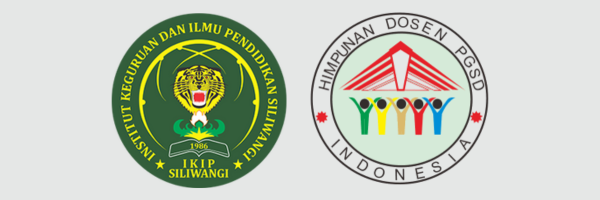The Relationship Between Digital Literacy and The Competency of Prospective Teacher Students in The Society 5.0 Era
DOI:
https://doi.org/10.22460/pej.v7i1.3687Abstrak
The emergence of society 5.0 promotes balance in all fields, especially education, and can provide a role in the progress of the learning process. The importance of students having digital literacy skills and competencies of prospective teachers is to have a critical and creative mindset for learning innovation in the classroom and be able to process information wise. The purpose of  this study is to see the ability of digital literacy and the competence of prospective teacher students and find out the influence of digital literacy on the competence of prospective teacher students in the era of society  5.0. The research uses a quantitative approach with a correlation method. The research population was all students of the Faculty of Tarbiyah and Teacher Training UIN Sunan Gunung Djati, with a sample of 1.132 students. The sampling technique uses random sampling. Data is collected through filling out questionnaires. The results of this study show that students are ready to face the era of society 5.0, marked by students being good at operating the internet to find  information and balanced by understanding the competence of the prospective teacher. There was a significant positive relationship between digital literacy and the competence of prospective teacher students and obtained an r count of 0.645 in the high category. It is shown that 41.6% of the competencies of prospective teachers are influenced by digital literacy and other unrelated factors with this study influence the remaining 58.4%.Referensi
Ariastika, D. (2022). THE APPLICATION OF DIGITAL LITERACY IN SCIENCE LEARNING IN FACING EDUCATIONAL READINESS IN THE ERA OF SOCIETY 5.0. FORDETAK: National Seminar on Education: Educational Innovation in the Era of Society 5.0, 132–142.
Bawden, D. (2001). Information and digital literacies: A review of concepts. Journal of Documentation, 57(2), 218–259. https://doi.org/10.1108/EUM0000000007083
Commission, E. (2009). Study on Assessment Criteria for Media Literacy Levels: A comprehensive view of the concept of media literacy and an understanding of how media literacy levels in Europe should be assessed. European Association for Viewers' Interests, October, 1–92.
Ekasari, P. A., & Rohman, T. (2020). Professional Competence of Teachers in Developing Curiosity and Creativity of Students of Madrasah Ibtidaiyah Salatiga City. Scientific Journal of Education, 6(4), 670–686. https://doi.org/10.5281/zenodo.4298424
Fukuyama, M. (2018). Society 5.0: Aiming for a New Human-centered Society. Japan SPOTLIGHT, August, 8–13.
Gupta, S. L., Kishor, N., Mishra, N., & Gupta, S. M. U. (2022). Transforming Higher Education Through Digitalization. CRC Press.
Hague, C., & Payton, S. (2010). Digital literacy across the curriculum: a Futurelab handbook. Futurelab. https://www.nfer.ac.uk/FUTL06/FUTL06.pdf
Hermawan, I., Supiana, & Zakiah, Q. yuliati. (2020). Teacher Development Policy in the Era of Society 5.0. JIEMAN: Journal of Islamic Educational Management, 2(2), 117–136.
Japan, G. (n.d.). How Japan is Preparing its Students for Society 5.0. Foreign Policy. https://foreignpolicy.com/sponsored/how-japan-is-preparing-its-students-for-society-5-0/.
Ministry of Education and Culture. (2017). Digital Literacy Support Materials: The National Literacy Movement. In Ministry of Education and Culture. https://gln.kemdikbud.go.id/glnsite/wp-content/uploads/2017/10/cover-materi-pendukung-literasi-finansial-gabung.pdf
Kurnianingsih, I., Rosini, & Ismayati, N. (2017). Efforts to Improve Digital Literacy Skills for School Library Personnel and Teachers in the Central Jakarta Region through Information Literacy Training. Journal of Community Service, 3(1), 61–76. https://doi.org/http://doi.org/10.22146/jpkm.25370
Lankshear, C., & Knobel, M. (2016). Digital Literacy and Digital Legacy: Policy, Pedagogy and Research Considerations for Education. Nordic Journal of Digital Literacy, 8–20. www.tagxedo.com
Lismanda, Y. F., & Anggraheni, I. (2020). Use-Technical Skills of Unisma PIAUD Students in Digital Media Literacy. Widyagogik : Journal of Primary School Education and Learning, 7(2), 139–147. https://doi.org/10.21107/widyagogik.v7i2.7090
Megayanti, W., Rosadi, N., & Robbani, H. (2022). Education on Youth Opportunities and Challenges in the Era of Society 5.0 for Students of the Tiara College of Islamic Economics, Napala Indonesia Foundation, Bogor, West Java. Publication of Abdimas Activities, 63–69.
Nasriani. (2022). Analysis of the Use of Digital Literacy as a Teacher Learning Medium at SD Negeri 2 Tambun. Formosa Journal of Social Sciences (FJSS), 1(2), 151–166.
Nur, H. M., & Fatonah, N. (2022). Teacher Competency Paradigm. UNIGA PGSD Journal, 1(1), 12–16.
Partono, Wardhani, H. N., Setyowati, N. I., Tsalitsa, A., & Putri, S. N. (2021). Strategies to Improve 4C Competencies (Critical Thinking, Creativity, Communication, & Collaborative). Journal of Educational Science Research, 14(1), 41–52.
Regulation of the Minister of National Education. (2007). Regulation of the Minister of National Education on Teacher Qualification and Competency Standards.
Pratama, R. A., Pratiwi, I. M., Lestari, N. I., & Saputra, M. A. (2022). Student Teachers' Readiness to Face Society 5 . 0 Challenges: Are They Ready to Teach with Competencies Needed ? University of Lampung International Conference on Social Sciences (ULICoSS 2021), 628, 470–476.
Rahayu, K. N. S. (2021). Education Synergy Welcomes Indonesia's Future in the Era of Society 5.0. Education: Journal of Primary Education, 2(1), 87–100. https://stahnmpukuturan.ac.id/jurnal/index.php/edukasi/article/view/1395
Rahmawati, A., & Nartani, C. I. (2018). Teacher's Social Competence in Communicating Effectively with Students through Indonesian Learning Activities at SD Negeri Rejowinangun 3 Kotagede Yogyakarta. Trihayu: Journal of Elementary Education, 4(3), 388–392.
Ririen, D., & Daryanes, F. (2022). Analysis of student digital literacy. Research and Development Journal of Education, 8(1), 210–219.
Sukraini, N. W. (2020). Developing Students' Essential Skills in Preparation for Society 5.0. Proceedings of the IAHN-TP Palangka Raya National Webinar 2020, 0, 1–14. https://prosiding.iahntp.ac.id
Susanto, S. N. (2021). Analysis of the Digital Literacy Ability of FKIP Students in Virtual-Based Online Learning in the New Normal Era. National Learning Transformation 2021, 1, 339–346.
Teknowijoyo, F., & Marpelina, L. (2021). Relevance of Industry 4.0 and Society 5.0 to Education in Indonesia. Educatio: Journal of Educational Sciences, 16(2), 173–184. https://doi.org/10.29408/edc.v16i2.4492
UNICEF. (2021). DIGITAL LITERACY IN EDUCATION SYSTEMS ACROSS ASEAN.
Usmaedi. (2021). Education Curriculum for Society 5.0 in The Next Decade. Setiabudhi Journal of Basic Education, 4(2), 63–79.
Yamin, M., & Fakhrunnisaa, N. (2022). Perceptions of Digital Literacy of IAIN Palopo Teacher Candidates. SAP (Educational Article Arrangement), 7(1), 1–9. https://doi.org/10.30998/sap.v7i1.13294












